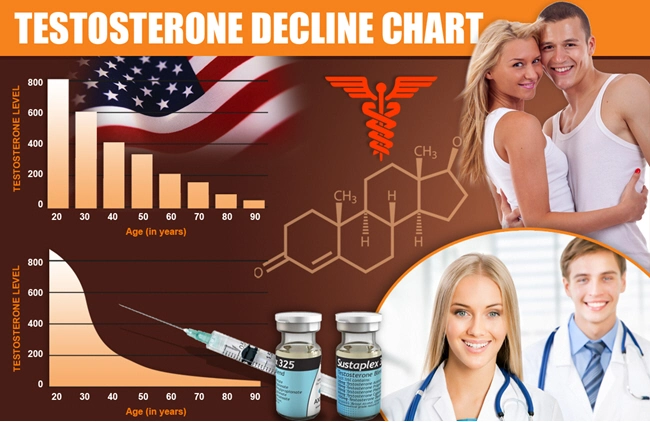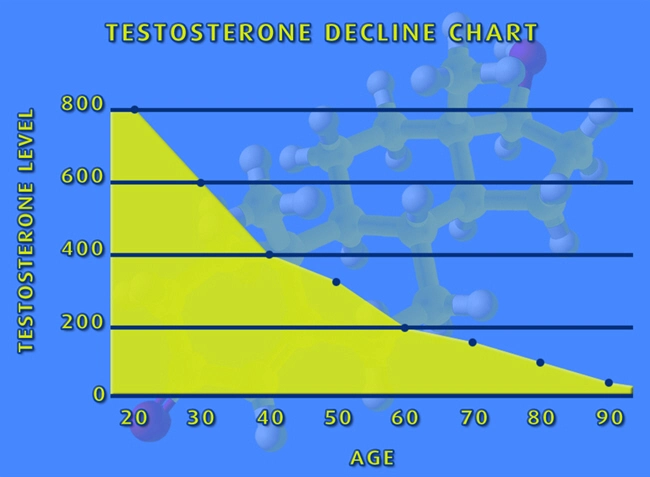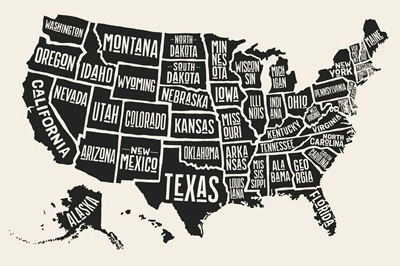
Video Link: https://vimeo.com/475314232
Video Download: Click Here To Download Video
Video Stream: Click Here To Stream Video
Soy: Does it Lower Testosterone?
The question is not as clear-cut as it may seem.
Soy. Seldom has there been so much controversy about an everyday food. So much debate. So much emotion.
Soy Has Even Become Politicized
That’s right, especially in America. As a rule, traditional American men with political views slightly tilted rightward prefer a meat-based diet.
 They often use a disparaging term to describe vegans: “Soy boys”, since they believe that eating a plant-based diet with soy as a primary protein source leads to weakness since they insist that soy lowers testosterone, the “manly hormone”, and results in a condition called “Low-T.”
They often use a disparaging term to describe vegans: “Soy boys”, since they believe that eating a plant-based diet with soy as a primary protein source leads to weakness since they insist that soy lowers testosterone, the “manly hormone”, and results in a condition called “Low-T.”
Vegan men, on the other hand, feel that they have as much testosterone rocket fuel rushing through their veins as their meat-eating fellow men – and as a bonus, are healthier by every metric. They also often describe their political orientation as progressive.
Keep in mind that there are exceptions to these generalities. But they tend to occur too often to be more than a coincidence.
So Who is Right? Does Soy Really Lower Testosterone?
To discover the truth, let’s approach objectively and examine the research. To begin, we need to define soy and why it is a typical food that can be added to a broad range of foods. Then we will look at both sides of the equation and present sufficient evidence to allow you to decide on soy.
What is Soy?
Soy protein is one of the most profusely eaten foods across the globe. Soybeans are legumes from East Asia used worldwide in various products. Many products add soy as an ingredient- tofu, soy milk, soups, meat substitutes, soybean oil, soy lecithin, textured vegetable protein (TVP)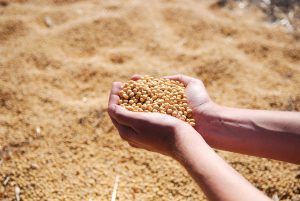 , and hydrolyzed vegetable protein (HVP) are all examples.
, and hydrolyzed vegetable protein (HVP) are all examples.
Soy appears in many products, such as Asian cuisine, vegetable gum, cereals, and cookies. Physical fitness fanatics may even discover it hiding in protein bars, canned tuna, and low-fat peanut butter.
Why is it Such a Common Food?
Turn on the news, and you’ll hear about the health benefits of soy. The diet book sections have many books about soy. A remarkable 8.52 million metric tons of soybean oil were consumed in 2012, and with an increase in GMO (genetically modified organism) foods, it is a cheap additional ingredient, as mentioned above.
Avoiding all soy products is impossible, as soy protein isolate, soybean oil, textured vegetable protein, and various other products account for approximately one-fifth of the calories consumed by Americans.
Soy even appears in baby formulas, and school lunch programs commonly add soy to hamburger patties as a cheap filler.
And let’s not forget the large agricultural companies (“Big Agra”) that are all-in on soy. With their unlimited marketing budgets, the benefits of soy are pumped out continuously.
If that weren’t enough, the Food and Drug Administration (FDA) is also on board as they insist there is evidence that soy may lower the risk of cardiovascular disease.
The Case for Soy
Let’s start with the potential benefits of soy. It is loaded with protein – one cup of cooked soybeans will deliver a whopping 22 grams of protein. Also, some studies have concluded that consuming vegetable proteins may slash the risk of a heart attack.
Other research has indicated that soy has cancer-fighting properties, especially prostate cancer in men. However, this study determined that this protection highly depended on the type of soy consumed.
Another study published in the World Journal of Urology measured the testosterone levels of 191 men to uncover any differences between meat-eaters and vegans – and found no difference.
‘We found a plant-based diet was associated with normal testosterone levels, levels that are the same as occur in men who eat a traditional diet that includes more meat,’ explained Dr. Ranjith Ramasamy, who co-authored the study and is the Director of Male Reproductive Medicine and Surgery at the University of Miami.
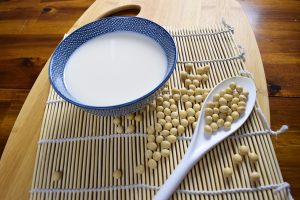 “Whether a man ate a traditional diet with lots of animal foods, a healthy plant-based diet or a less healthy plant-based diet, simply did not matter,” added co-author Manish Kuchakulla. “We found no difference.”
“Whether a man ate a traditional diet with lots of animal foods, a healthy plant-based diet or a less healthy plant-based diet, simply did not matter,” added co-author Manish Kuchakulla. “We found no difference.”
Still another essential study reported the following on the link between soy and testosterone:
No significant effects of soy protein or isoflavone intake on testosterone, SHBG (steroid hormone binding globulin), free testosterone, or FAI (free androgen index) were detected regardless of statistical mode. This meta-study analysis suggests that neither soy foods nor isoflavone supplements alter the measure of bioavailable concentrations in men.
Also, soy is inexpensive, has an excellent history in Asia, and the government has allowed a seal of approval to be stamped on food items that contain 6.25 grams of soy protein.
These studies and facts prove that the fears about soy and testosterone are overblown. But as with so many issues, the story has two sides. Let’s now take a look at the opposite side of this coin.
The Case Against Soy
The big issue concerning soy is this: Does soy really lower testosterone? The idea that the bean decreased testosterone started from the fact that soy contains active compounds called isoflavones- plant-derived phytoestrogens that sometimes act like female hormones like estrogen and estradiol.
The theory states that when isoflavones are metabolized, the stomach produces equol; estrogen has been shown to slow prostate growth and lower dihydrotestosterone (DHT) activity, which is a type of testosterone.
This theory drew the immediate and undivided attention of athletes, bodybuilders, nutritionists, bio-hackers, and anyone else concerned about soy's potentially devastating side effects. They were, to put it mildly, alarmed.
On the other hand, the vast majority of the population believed what they were seeing on the television commercials brought to you by Big Agra that assured them that soy was good for them. There was nothing to be concerned about.
Numerous studies suggest that soy has an estrogenic effect on the body, lowering testosterone levels. Let’s take a look at a few of them.
#Study 1: Dillingham et al. In this study, 35 men consumed a range of protein isolate drinks over 57 days. The results reported both decrease in testosterone and dihydrotestosterone (DHT) and an increase in estradiol in both the low and high-dose groups.
The study determined that this food, regardless of isoflavone content, decreased testosterone and DHT with minor effects on other hormones, providing evidence for some effects of soy protein on hormones.
#Study 2: Chavarro et al. This study examined the possible link between soy foods and isoflavones consumption with semen quality parameters while adjusting  for personal characteristics. The study was conducted using 99 infertile males. The results found a reverse relationship between soy food intake and sperm concentration and those consuming the most soy with the lowest count.
for personal characteristics. The study was conducted using 99 infertile males. The results found a reverse relationship between soy food intake and sperm concentration and those consuming the most soy with the lowest count.
#Study 3: Siepman et al. This study focused on a 19-year-old man with diabetes and the sudden onset of loss of libido and erectile dysfunction after consuming significant amounts of soy-based products in a vegan-style diet. His testosterone and DHT levels were both dramatically lowered.
However, it must be mentioned that the man studied had an existing metabolic disease and needed to eat significant amounts of soy to meet his protein requirements – 9 to 10 times the average amount for a lengthy time. All symptoms normalized once he reduced his soy intake and stopped the vegan diet.
If the link between soy and Low-T is genuine, let’s delve into a possible cause of the problem.
The anxiety with soy is that it contains plant chemicals known as isoflavones that act as endocrine disrupters. Two possible scenarios explain how isoflavones can act on mammalian cells. They can attach to cell receptors in the cell nucleus, which then bind to DNA, which leads to protein encoding, which is the role that protein is designed to follow. Therefore they then mimic a weaker version of estrogen – not suitable for muscle growth and strength.
In the second scenario, the isoflavones can attach to these receptor sites, change the locks and keys, and move in like-new homeowners. This stops estrogen from opening the door to its home and causes a process that prevents correct protein encoding.
Either scenario is not good for any man trying to build or maintain muscle mass.
But There are Other Concerns About Soy
The above theory is still disputed. But other research may make you think twice about lowering your soy consumption:
- Protein breakdown. A study determined that soy protein might increase protein breakdown in skeletal muscle. The scientists fed both casein, and soy protein isolate to pigs for 15 weeks and concluded that: "These data suggest that the inferior quality of dietary soybean protein induces hormonally-mediated upregulation of muscle protein breakdown for recruitment of circulatory amino acids in a post-absorptive state." Bodybuilders take protein to build muscle; if it breaks down, it can’t fulfill its role.
- Mineral absorption. Unfermented soy contains significant amounts of phytic acid, which inhibits the absorption of minerals like calcium, magnesium, iron, and zinc.
- An added environmental estrogenic substance. A grim reality: we are under a continual barrage of ecological endocrine disrupters. Air pollution, water pollution, toxic chemicals, and food additives affect our hormonal and endocrine systems, and these effects are probably not beneficial. Even in
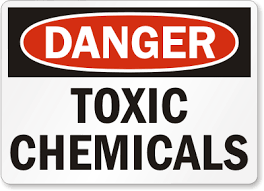 the privacy of our homes, we are still at risk from chemicals. If it turns out that soy is not the testosterone destroyer some believe it is, it still may be able to wreak havoc on our endocrine systems, which are already stretched to the breaking point. So for many, the risk of that happening outweighs any potential benefits of soy. This is especially true if you are a bodybuilder. Why consume soy protein when superior alternatives like whey and casein proteins exist?
the privacy of our homes, we are still at risk from chemicals. If it turns out that soy is not the testosterone destroyer some believe it is, it still may be able to wreak havoc on our endocrine systems, which are already stretched to the breaking point. So for many, the risk of that happening outweighs any potential benefits of soy. This is especially true if you are a bodybuilder. Why consume soy protein when superior alternatives like whey and casein proteins exist?
So there you have it. Both sides of the equation. Do your research and determine if soy should be a part of your nutrition plan, and, if so, how much.
References
Jill Hamilton-Reeves, et al. "Clinical studies show no effects of soy protein or isoflavones on reproductive hormones in men: Results of a meta-analysis, "Fertility and Sterility, 94(3):997-1007; July, 2009.
https://metro.co.uk/2020/08/22/no-vegan-soy-boys-dont-have-lower-testosterone-meat-eaters-13162414/
Löhrke B1, Saggau E, Schadereit R, Beyer M, Bellmann O, Kuhla S, Hagemeister H. "Activation of skeletal muscle protein break down following consumption of soyabean protein in pigs," Br J Nutr. 2001 Apr;85(4):447-57.
Contact Us Today For A Free Consultation
Dear Patient,
Once you have completing the above contact form, for security purposes and confirmation, please confirm your information by calling us.
Please call now: 1-800-380-5339.
Welcoming You To Our Clinic, Professor Tom Henderson.

- LabCorp Announces a Change to the Testosterone Reference Range [Last Updated On: May 11th, 2024] [Originally Added On: June 23rd, 2019]
- Important Facts About Testosterone Therapy Before Buying [Last Updated On: May 13th, 2024] [Originally Added On: July 13th, 2019]
- Testosterone Treatments May Successfully Reverse Type-2 Diabetes in Some Men [Last Updated On: May 10th, 2024] [Originally Added On: November 13th, 2020]
- Testosterone Replacement Therapy (TRT) May Prevent Heart Attacks and Diabetes [Last Updated On: May 16th, 2024] [Originally Added On: November 17th, 2020]
- Did You Know? Recent Studies Have Confirmed the Link Between Low Testosterone (“Low-T”) and Depression. [Last Updated On: May 12th, 2024] [Originally Added On: January 10th, 2021]
- New Study Finds Testosterone Does Not Increase Your Heart Attack Risk [Last Updated On: May 9th, 2024] [Originally Added On: January 11th, 2021]
- The Great Testosterone Debate [Last Updated On: May 15th, 2024] [Originally Added On: January 14th, 2021]
- Testosterone Replacement Therapy Lowers Heart Attack Risk [Last Updated On: May 14th, 2024] [Originally Added On: January 18th, 2021]
- New Study Says: The Benefits of Testosterone Replacement Therapy Outweigh The Risks [Last Updated On: May 17th, 2024] [Originally Added On: January 19th, 2021]
- Male Menopause. Fact or Fiction ? [Last Updated On: May 18th, 2024] [Originally Added On: January 20th, 2021]
- Testosterone: How Much Do You Really Know About This Masculine Hormone? [Last Updated On: October 6th, 2024] [Originally Added On: February 9th, 2021]
- Low-T: What are healthy levels of Testosterone and why is it difficult to measure? [Last Updated On: August 10th, 2024] [Originally Added On: April 3rd, 2021]
- Testosterone Therapy May Be Good for the Heart if You Have Low-T [Last Updated On: May 27th, 2024] [Originally Added On: July 21st, 2021]
- A Recent Study Concludes: Testosterone DOES NOT Cause Prostate Cancer [Last Updated On: August 14th, 2024] [Originally Added On: August 16th, 2021]
- In the Battle Against Aging, When do the Risks Outweigh the Rewards? [Last Updated On: May 1st, 2024] [Originally Added On: August 18th, 2021]
- New Study Concludes: Boosting Testosterone Levels Lowers Men's Death Risk [Last Updated On: June 2nd, 2024] [Originally Added On: August 20th, 2021]
- Testosterone Replacement Therapy Slows Prostate Cancer! [Last Updated On: April 29th, 2024] [Originally Added On: September 13th, 2021]
- Research proves that Testosterone Therapy Boosts Fertility! [Last Updated On: May 2nd, 2024] [Originally Added On: September 26th, 2021]
- Free Testosterone and Sex Hormone-Binding Globulin [Last Updated On: May 3rd, 2024] [Originally Added On: October 15th, 2021]
- Testosterone Does Not Cause Heart Attacks [Last Updated On: May 4th, 2024] [Originally Added On: October 15th, 2021]
- Testosterone and Women [Last Updated On: May 5th, 2024] [Originally Added On: October 15th, 2021]
- Testosterone and Metabolic Syndrome [Last Updated On: April 30th, 2024] [Originally Added On: October 15th, 2021]
- Testosterone and Disease Prevention [Last Updated On: April 27th, 2024] [Originally Added On: October 15th, 2021]
- Judge Vacates $140 Million Verdict in Testosterone Lawsuit [Last Updated On: April 28th, 2024] [Originally Added On: October 15th, 2021]
- Testosterone and Estrogen [Last Updated On: May 6th, 2024] [Originally Added On: October 16th, 2021]
- Testosterone and Aging [Last Updated On: May 7th, 2024] [Originally Added On: October 16th, 2021]
- Testosterone Replacement Therapy (TRT) Benefits [Last Updated On: May 8th, 2024] [Originally Added On: October 16th, 2021]
- Testosterone and Male Menopause [Last Updated On: April 26th, 2024] [Originally Added On: October 16th, 2021]
- Testosterone Battles Obesity [Last Updated On: April 25th, 2024] [Originally Added On: October 16th, 2021]
- Why You Need Testosterone Replacement Therapy [Last Updated On: June 5th, 2024] [Originally Added On: October 16th, 2021]
- Testosterone FAQ's [Last Updated On: June 4th, 2024] [Originally Added On: October 25th, 2021]
- How Testosterone Impacts Sexual Preferences In Men and Women [Last Updated On: April 24th, 2024] [Originally Added On: October 30th, 2021]
- Growth Hormone and The Thyroid Gland [Last Updated On: May 19th, 2024] [Originally Added On: November 19th, 2021]
- How Does Masturbation Affect Testosterone Levels? Exploring the Science [Last Updated On: June 15th, 2024] [Originally Added On: March 27th, 2022]
- Testosterone Therapy Increasingly Used to Help Men Take Control of Aging [Last Updated On: June 16th, 2024] [Originally Added On: May 30th, 2022]
- The many benefits of Testosterone Replacement Therapy (TRT) [Last Updated On: October 1st, 2024] [Originally Added On: June 13th, 2022]
- Tlando Testosterone - A Brand New Way to Treat Low-T Safely with a Testosterone Pill [Last Updated On: June 19th, 2024] [Originally Added On: July 12th, 2022]
- Safe Tlando Testosterone Changes Landscape of Low-T Therapy [Last Updated On: June 21st, 2024] [Originally Added On: August 15th, 2022]
- Systems to Monitor Testosterone Replacement Therapy (TRT) [Last Updated On: September 11th, 2024] [Originally Added On: September 21st, 2022]
- Testosterone May Help You Keep Your Job (Or Find Another) [Last Updated On: July 4th, 2024] [Originally Added On: October 4th, 2022]
- Toxic Chemicals are Killing your testosterone…And your Manhood! [Last Updated On: October 28th, 2024] [Originally Added On: October 10th, 2022]
- A new study reveals that Testosterone improves body composition in men with low testosterone! [Last Updated On: September 21st, 2024] [Originally Added On: October 17th, 2022]
- A former Mr. Olympia speaks about testosterone [Last Updated On: September 9th, 2024] [Originally Added On: November 8th, 2022]
- Testosterone Blockers Thwart Melanoma [Last Updated On: July 1st, 2024] [Originally Added On: December 11th, 2022]

